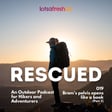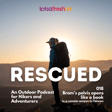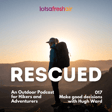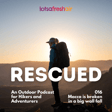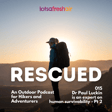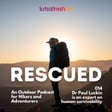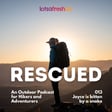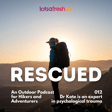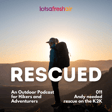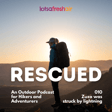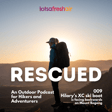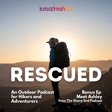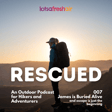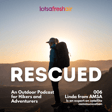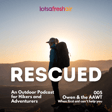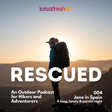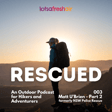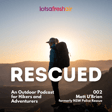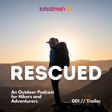
008 // Outback Mike (Atkinson) - Lessons from a Life of Adventure
There is so much more to Mike Atkinson (aka Outback Mike) than what we saw of his 64 days, toughing it out in the wilds of Tassie’s west coast, on the first season of SBS’ Alone Australia (season 2 kicks off 27/3/23).
He’s been having epic expedition style adventures since his first long hike at 11 years old with his family and building towards his first solo trip, skiing from Mt Kosciusko to Canberra, aged 17.
Watching him on ALONE, I was drawn in by his problem solving and seemingly endless tinkering to build a better existence out in takayna/The Tarkine. As you’ll hear in this episode (and can read much more about in his book Modern Day Castaway), his ALONE canoe wasn’t his first.
In this ep we get to know a bit more about what drives this type of life and what it takes in the form of meticulous planning and testing, before committing to something that might cost him everything... and how he once made the decision to call for help.
BTS: If you listen carefully, you might hear aircraft in the background. Yep… if you’re going to be an Air Force pilot, you live near an airbase!
Download the transcript here.
Episode takeaways:
- Why life is better with adventure
- How Mike approaches problem-solving and mitigating risk
- The value of calling for help early
- What a pilot sees from the air (tips for being visible)
- Decision-making in a crisis - how not to be ‘flappy’
- The importance of satellite communication and the value of 2-way devices eg. ZOLEO, InReach, etc
- Choosing who will be your emergency contact
- When emotions can surprise you and how they could affect decision making
- Preparation and planning
- What adventurers can learn from pilots - making plans for every possible scenario, mental checklists and rehearsing them
- Mitigating rescue resources through smart planning
- The issue of sharing locations to ‘special spots’ on social media
- The down and UP sides of risk
- Why hardship is good for us
Links from this episode:
Mike’s website - outbackmike.com
Mike’s book - Modern Day Castaway
Timelapse video of Mike building his dugout canoe
Mike and his kids do the Snowies 10 Peaks Video
Thanks to sponsor Paddy Pallin
****Check out my 4 day (24-27 April) Intro to Navigation Retreat at Corinna, takayna/The Tarkine here.****
